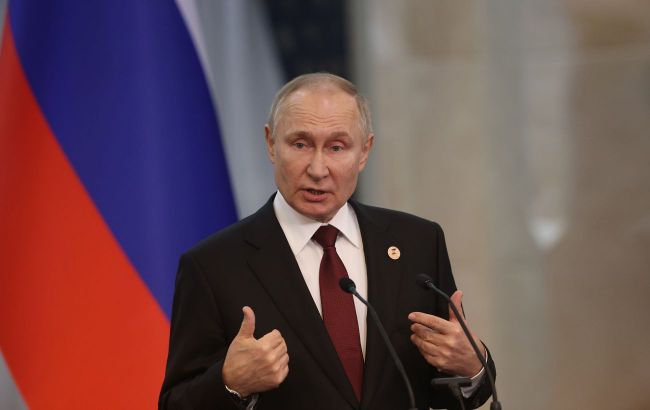Putin trying to use energy as a weapon - UK intelligence
 Russian dictator Vladimir Putin (Getty Images)
Russian dictator Vladimir Putin (Getty Images)
Throughout the war with Ukraine, Russia sought to use energy as a weapon, reports the Ministry of Defense of the United Kingdom.
As stated in the report, Russia's strikes on Ukrainian energy infrastructure caused a massive electricity shortage across the country, while Russian President Vladimir Putin used energy policy to undermine international energy security worldwide.
"By reducing gas flows to Europe, through restricting pipeline exports and altering payment terms, Putin has sought to undermine unity across Europe against Russia's illegal war," the report said.
According to British intelligence, Russia's use of energy as a weapon is likely to remain a coercive tool.
"It is highly likely that Russia will continue to use energy as a weapon for global economic gain and political influence, signifying the link between energy, security, political, and military objectives," the Ministry of Defense notes.

Source: https://twitter.com/DefenceHQ
Examples of using energy as a weapon
British intelligence notes that in February 2014, Russia occupied Crimea while in February seized Ukraine's oil and gas platforms in the Black Sea.
In 2021, Gazprom reduced gas supplies to Europe to reduce reserves. After invading Ukraine on February 24, 2022, Russia immediately seized the Chornobyl nuclear power plant, and on March 4, the Zaporizhzhia nuclear power plant.
In March 2022, Moscow demanded payment for gas in rubles. Since May 2022, Russia has reduced gas supplies through the Yamal-Europe pipeline. In August 2022, Russia reduced supplies through Nord Stream 1. In May 2023, a Russian military ship approached the TurkStream and Blue Stream gas pipelines in the Black Sea.
In November 2022, Moscow began attacking Ukrainian infrastructure and continued strikes in January 2024.
Putin lost again
Russian President Vladimir Putin in 2022 bet on an energy crisis in Europe by stopping the supply of pipeline gas. Moscow's propaganda actively used the thesis that "Europe will freeze" without Russian gas.
However, active measures by the EU and increased imports from other countries, reduced consumption, while mild weather led to a winter without shutdowns and sharply lower prices.
As a result, Gazprom basically lost its main market in Europe, which brought it tens of billions of dollars annually. Gas supplies to Europe by Gazprom in 2023 decreased to 28.3 billion cubic meters. In 2022, Russia supplied to Europe through various routes about 63.8 billion cubic meters of gas. At its peak in 2018-2019, annual flow reached 175-180 billion cubic meters.
Half of Russia's oil and oil product exports in 2023 went to China, while India's share doubled in two years to 40%. Europe's share of oil exports from Russia fell about tenfold to approximately 4-5% from about 40-45%.

